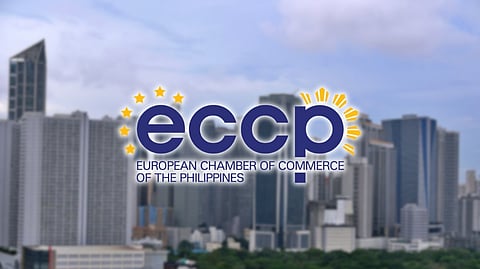
- NEWS
- the EDIT
- COMMENTARY
- BUSINESS
- LIFE
- SHOW
- ACTION
- GLOBAL GOALS
- SNAPS
- DYARYO TIRADA
- MORE

To complement the European Commission’s decision to remove the country from a list of “high-risk” money laundering havens, the European Chamber of Commerce of the Philippines (ECCP) urged the full implementation of the Anti-Financial Account Scamming Act (AFASA).
Republic Act 12010, also known as the AFASA Law, enhances the security of financial systems and empowers institutions to combat illicit financial activities more effectively, according to the ECCP.
In July 2024, President Ferdinand Marcos Jr. signed the act, which took effect on 25 June this year, aiming to curb financial scams, protect consumers, and strengthen trust in the financial system.
“The ECCP remains committed to working with the government and other stakeholders in advancing good governance, a sound regulatory environment, and sustainable economic growth,” the ECCP said.
The European Commission (EC) delisted the Philippines as a “high-risk” country for money laundering on Tuesday.
The move follows the Paris-based Financial Action Task Force’s (FATF) decision in February to delist the Philippines from its list of countries subject to increased monitoring of financial transactions.
Affirmation of anti-money laundering strides
ECCP stated that the latest development follows the country’s earlier removal from the FATF gray list of countries with high risk of money laundering and is a strong affirmation of the Philippines’ significant strides in strengthening its anti-money laundering and counter-terrorism financing (AML/CTF) framework.
“This milestone reflects the government’s continued commitment to upholding financial integrity, advancing regulatory reforms, and aligning with international standards. We commend the collaborative efforts of our government partners and acknowledge the important contributions of the private sector in supporting the country’s progress in this area,” the ECCP statement on Thursday said.
“The Chamber believes that this development will further enhance investor confidence, facilitate smoother financial transactions with European counterparts, and reinforce the Philippines’ reputation as a credible and attractive destination for trade and investment,” it added.
Aside from the Philippines, the European Union’s executive body also removed Barbados, Gibraltar, Jamaica, Panama, Senegal, the United Arab Emirates and Uganda from the list.
Meanwhile, 10 countries were added to the list to increase monitoring of their anti-money laundering controls: Algeria, Angola, Ivory Coast, Kenya, Laos, Lebanon, Namibia, Nepal, Venezuela, and Monaco, which had been on the FATF list since mid-2024.
Monaco, however, stated its commitment to being removed from the grey list “in the short term.”
